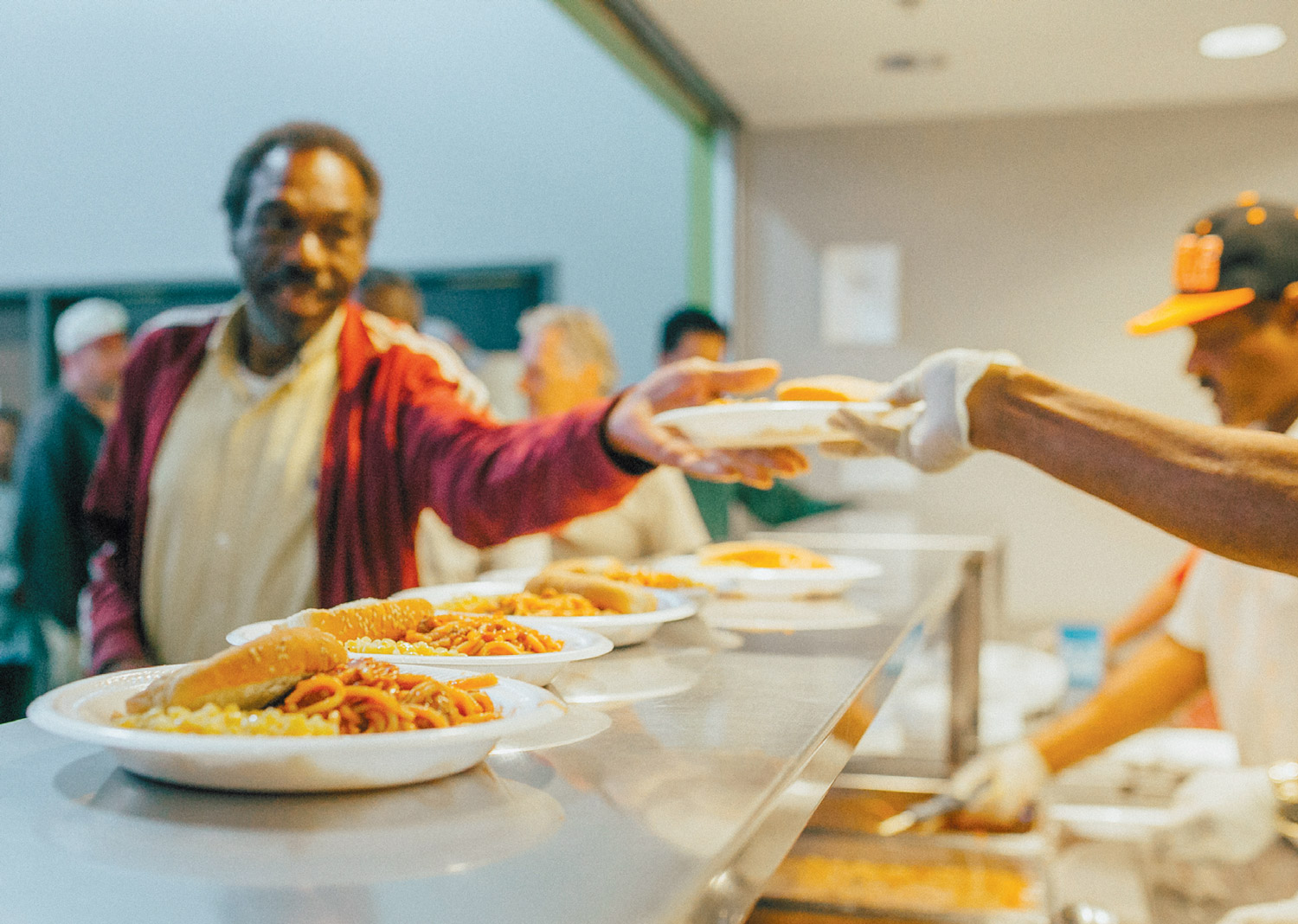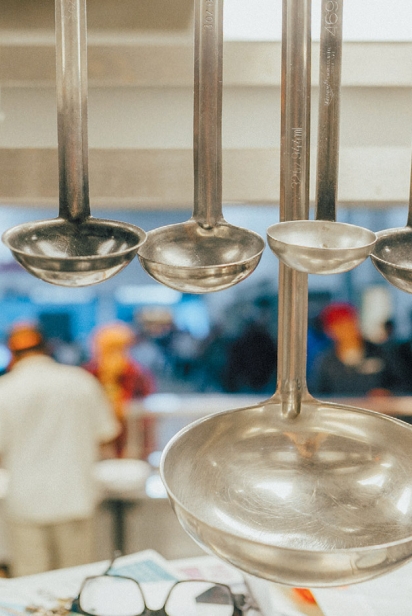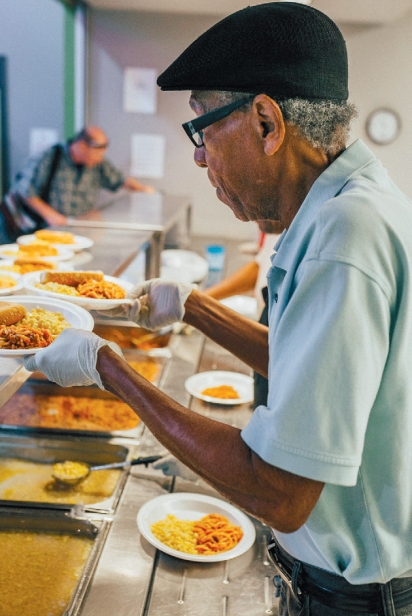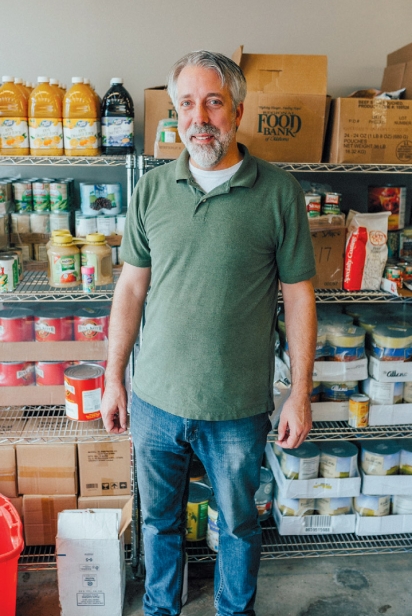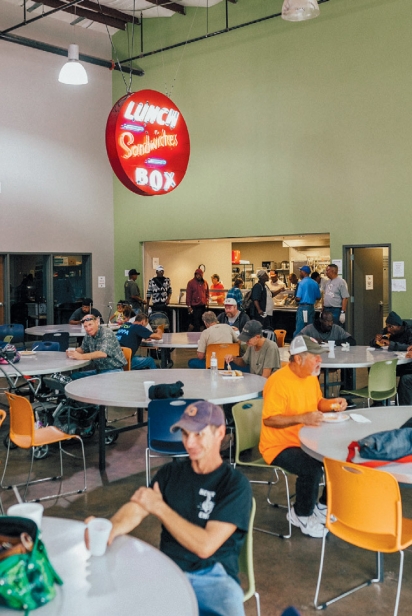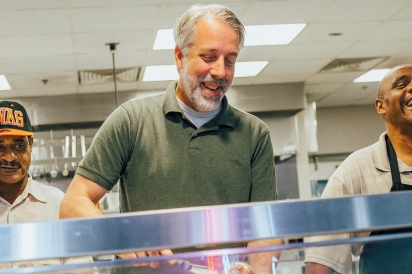Turning the Table on Hunger
Enjoyable meals are one of life’s greatest pleasures. Whether it’s a dry-aged ribeye steak on a fancy date night, take-out from your favorite Thai joint on the couch, or a simple home-cooked meal with friends, food does more than nourish our bodies. Good food provides topics of conversation with tablemates, methods of comforting ourselves and each other, and opportunities for congregating with our loved ones.
If you’re reading this magazine, the odds are very good that you have epicurean tastes and that you spend a good deal of your income on trying new restaurants or procuring your favorite artisan cheeses, organic produce, or responsibly raised cuts of meat. There are thousands of foodies across the Oklahoma City metro; however, there are also thousands of people who are homeless or living with food insecurity.
Oklahoma City estimates that somewhere between 5,500 to 7,000 of our citizens are experiencing homelessness every year. Without a kitchen, a pantry, or reliable income, eating becomes more about scavenging to acquire cheap, innutritious food. Any kind of food will do when you’re truly experiencing hunger.
Since 2004, the Homeless Alliance has served the homeless community near downtown Oklahoma City. Aside from providing breakfast and lunch to 300 people each day, they also provide many essential services in one complex to support the population and get people back into housing. People in need of mental health, substance abuse, and health care services can be treated in this one place, eliminating issues of transportation and follow-through that arise when people are sent around to different agencies to meet different needs.
The Homeless Alliance’s kitchen often relies on volunteers, and their pantry consists of donations. This normally results in a random hodgepodge of foodstuffs and a team with varying levels of cooking experience. That can get the job done as far as basic nourishment, but what about those other food-related jobs, like providing comfort? Especially around the holidays, vulnerable populations are in need of the comfort and congregation associated with specially prepared, traditional holidays foods.
To meet that need, Clayton Bahr and David Cathey started the first annual Turkey Tango just three years ago. The event, which occurs every Thanksgiving at the Homeless Alliance, involves a true all-star cast of the local chefs in our community. Within 24 hours, these chefs prepare 120 turkeys, as well as a plethora of side dishes that would make your family’s get-together pale in comparison.
“My mom has never cooked turkey that good,” Bahr chuckles. “They’re perfectly browned and juicy.” The Hutch, formerly The Coach House, provides the stuffing every year, and other local restaurants focus on classic, comforting side dishes, such as green beans and mashed potatoes.
The first Turkey Tango was such a success that Bahr and Cathey started another program, Turning the Tables on Hunger. The idea is to provide quality, chef-driven meals to feed people at the day shelter. Those seeking help at the Homeless Alliance can’t afford to eat at places like Cheever’s, Meat Market Refectory, or Cafe 501, but thanks to Bahr and Cathey, that doesn’t prohibit them from enjoying wellprepared meals made by the chefs from those restaurants.
Turning the Tables on Hunger generally pops up once a month at the Homeless Alliance, with a different restaurant or catering group running the kitchen each time. They bring their staff to volunteer their skills for the day, which can be more challenging than a normal shift at a restaurant.
Instead of having their preferred, tried-and-true ingredients on hand, the volunteer chefs have to make a menu featuring whatever is available in the Homeless Alliance’s pantry. It is significantly easier to create dishes when you have daily shipments of produce and nice cuts of meat purchased with the intentionality of a restaurant to choose from, but a bit of an Iron Chef style challenge occurs when the walkin cooler and pantry are instead stocked with a random selection of donated foodstuffs.
“I’ve seen some pretty creative salad dressings come about with whatever hodgepodge is back there,” Bahr says with a laugh.
The program generally discourages the chefs from bringing in their own ingredients. “We try to get them not to do that, because that’s too easy,” Bahr explains. “I want them to see how challenging this is. It also helps to give the other people working here some ideas, ways to use items they hadn’t previously thought of. They have to do it every single day, come in and figure out what to make for 300 people with these ingredients. Sometimes it’s just beans and rice.”
To keep the day shelter better stocked, Matt Burch from Urban Agrarian and Chesapeake Gardens has been helpful in providing fresh produce. Local ranchers will sometimes break down a whole cow to donate, and occasionally game hunters bring in more exotic proteins, like wild elk and geese.
If you’re interested in getting involved, the Homeless Alliance’s WestTown Day Shelter is always in need of food donations, which can be dropped off in person at 1729 NW 3rd Street in Oklahoma City. Monetary donations, which are used to buy food and ingredients, can be made at homelessalliance.org.


